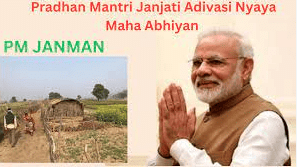PIB Summary- 24th August, 2024 | PIB (Press Information Bureau) Summary - UPSC PDF Download
Carbon Capture, Utilization, and Storage (CCUS)
Context
A two day workshop was held on the “Legal & Regulatory Frameworks and Technical Considerations for Carbon Capture Utilization and Storage (CCUS)” on 22nd -23rd August 2024 at The Oberoi, New Delhi.
Carbon Capture, Utilization, and Storage (CCUS)
- CCUS encompasses a set of technologies and processes designed to address carbon dioxide (CO2) emissions originating from significant point sources like power plants, industrial facilities, and refineries.
- The core aim of CCUS is to prevent the release of CO2 into the atmosphere, representing a crucial strategy for mitigating greenhouse gas emissions in various industries.
Key Steps in CCUS Implementation
Capture Process:
- This step involves seizing CO2 emissions at their source before they are released.
- Various capture methods are employed, such as post-combustion capture, pre-combustion capture, and oxy-fuel combustion.
Transportation:
- This stage encompasses the movement of compressed CO2, either by ship or pipeline, from the point of capture to the storage site.
Storage:
- The transported CO2 finds its storage in underground geological formations, which may include depleted oil and gas fields or deep saline aquifers.
Utilization:
- After capture, CO2 can be repurposed in various applications instead of being released into the atmosphere.
- Utilization can involve incorporating CO2 into industrial processes, such as the production of chemicals or fuels.
Significance of Carbon Capture, Utilization, and Storage (CCUS)
Policy Emphasis:
- The NITI Aayog’s report, ‘Policy Framework and Deployment Mechanism for Carbon Capture, Utilisation, and Storage in India,’ underscores CCUS as a pivotal strategy for emission reduction, particularly in challenging sectors.
- Hard-to-abate industries, including steel, cement, and petrochemicals, benefit significantly from CCUS interventions.
Global Imperative:
- The IPCC highlights the indispensability of CCUS technologies in achieving global net zero emissions, emphasizing its role as a crucial deployment mechanism.
Benefits and Applications of CCUS
Grid Flexibility:
- Incorporating CCUS into the energy mix enhances flexibility in the energy grid.
Low-Carbon Energy Production:
- CCUS facilitates the production of low-carbon electricity and hydrogen, with the latter serving as a direct substitute for fossil fuels.
- This diversity contributes to energy security, aligning with the priorities of governments worldwide.
Applications of CCUS in Industries
Concrete and Cement Industry:
- CCUS technology captures CO2 emitted during the firing of limestone and clay in the concrete and cement industry.
- Recovered CO2 is injected into concrete mixtures, enhancing strength and durability through a process known as carbonation.
Synthetic Gas Production:
- CCUS serves as a source of CO2 for synthetic gas production, a crucial component for the further production of bio-jet fuel, supporting sustainable aviation fuel initiatives.
Fine Chemicals Industry:
- CCUS is employed in the fine chemicals industry by capturing CO2, blending it with biomass, and transforming it into oxygenated compounds like high-functional plastics.
Infrastructure Utilization:
- CCUS enables industries to continue using existing infrastructure, such as power plants and manufacturing facilities, reducing the need for significant capital investments in new, low-carbon alternatives.
Pradhan Mantri Janjati Adivasi Nyaya Maha Abhiyan
Context
With an aim of reaching out to Particularly Vulnerable Tribal Groups (PVTG) habitations and PVTG families in 194 districts across the country, the Union Ministry of Tribal Affairs is running a nationwide Information, Education and Communication (IEC) campaign and Beneficiary Saturation Camps for the Pradhan Mantri Janjati Adivasi Nyaya Maha AbhiyaN (PM-JANMAN), from 23rd August, 2024 till 10th September, 2024.
Pradhan Mantri Janjati Adivasi Nyaya Maha Abhiyan (PM JANMAN): Empowering Tribal Communities
Comprehensive Scheme:
- PM JANMAN, comprising Central Sector and Centrally Sponsored Schemes, is a holistic initiative targeting 11 critical interventions through nine ministries, with a particular focus on the Ministry of Tribal Affairs.
Key Interventions:
- Aims to address 11 critical interventions, including permanent housing, road connectivity, piped water supply, mobile medical units, hostel construction, ‘Anganwadi’ facilities, and skill development centers.
Additional Ministries’ Involvement:
Beyond the 11 critical interventions, other ministries contribute to the mission’s success.
Ministry of Ayush:
- Establishes Ayush Wellness Centres based on existing norms.
- Extends Ayush facilities to Particularly Vulnerable Tribal Group (PVTG) habitations through Mobile Medical Units.
Ministry of Skill Development and Entrepreneurship:
- Facilitates skill and vocational training in PVTG habitations, multipurpose centers, and hostels, aligning with the specific skills of these communities.
















